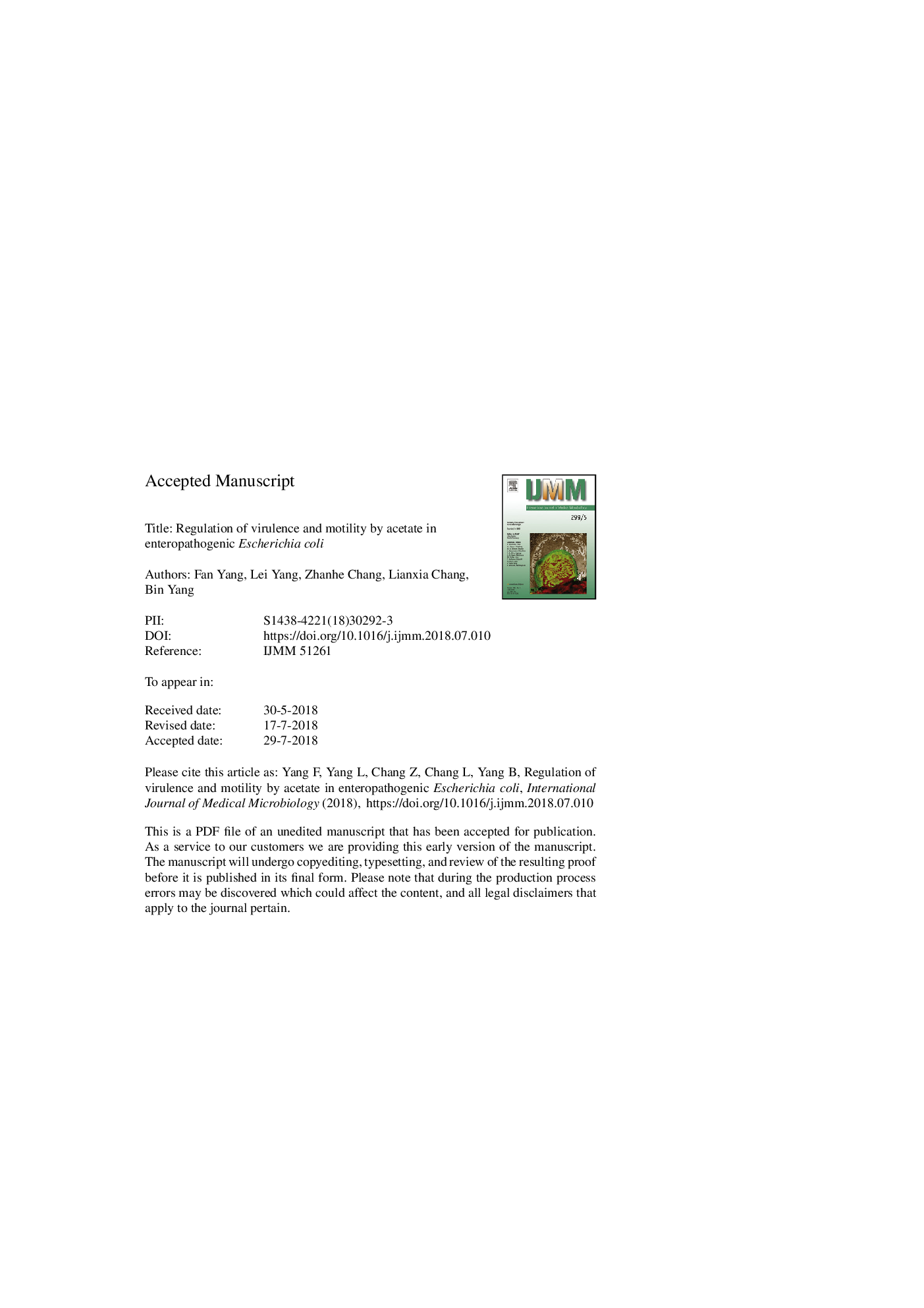| کد مقاله | کد نشریه | سال انتشار | مقاله انگلیسی | نسخه تمام متن |
|---|---|---|---|---|
| 10157223 | 1666452 | 2018 | 31 صفحه PDF | دانلود رایگان |
عنوان انگلیسی مقاله ISI
Regulation of virulence and motility by acetate in enteropathogenic Escherichia coli
دانلود مقاله + سفارش ترجمه
دانلود مقاله ISI انگلیسی
رایگان برای ایرانیان
کلمات کلیدی
CFUDMEMEHECEPECOD600LEEA/E - A / EEnterohemorrhagic Escherichia coli - Escherichia coli EnterohemorrhagicEnteropathogenic Escherichia coli - Escherichia coli انتروپاتوژنیکDulbecco’s modified Eagle medium - Modified Eagle اصلاح شده DulbeccoLuria–Bertani - لواریا بارتانیLocus of enterocyte effacement - محل انسداد انتروسیتcolony-forming units - واحدهای تشکیل دهنده کلنیAttaching and effacing - پیوستن و خالی کردن
موضوعات مرتبط
علوم زیستی و بیوفناوری
بیوشیمی، ژنتیک و زیست شناسی مولکولی
بیوشیمی، ژنتیک و زیست شناسی مولکولی (عمومی)
پیش نمایش صفحه اول مقاله

چکیده انگلیسی
Enteropathogenic Escherichia coli colonizes the human small intestine and causes severe diarrhea. Short-chain fatty acids are abundant in the intestine owing to the metabolic activity of the microflora and are important for intestinal health. Here, we found that acetate promotes the adherence of enteropathogenic E. coli O127:H6 to Caco-2 intestinal epithelial cells and its motility on semi-solid Luria-Bertani agar by activating the expression of locus of enterocyte effacement genes and flagellar genes, respectively. The effect of acetate on locus of enterocyte effacement gene expression is mediated by Ler, the master regulator of locus of enterocyte effacement genes, whereas the regulation of flagellar genes by acetate is dependent on the RNA polymerase sigma factor FliA. Conversely, formate, propionate, and butyrate had little or no effect on enteropathogenic E. coli O127:H6 adherence and motility. Finally, the acetate-mediated regulatory pathway was found to be a widespread mechanism used by a range of enteropathogenic E. coli to mediate bacterial virulence and motility. Therefore, upon entering the human small intestine, enteropathogenic E. coli may respond to the higher acetate level to enhance its virulence and motility, leading to efficient colonization of the target niche.
ناشر
Database: Elsevier - ScienceDirect (ساینس دایرکت)
Journal: International Journal of Medical Microbiology - Volume 308, Issue 7, October 2018, Pages 840-847
Journal: International Journal of Medical Microbiology - Volume 308, Issue 7, October 2018, Pages 840-847
نویسندگان
Fan Yang, Lei Yang, Zhanhe Chang, Lianxia Chang, Bin Yang,